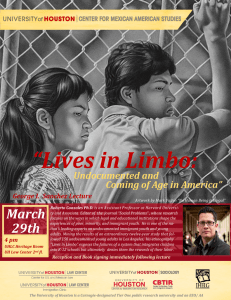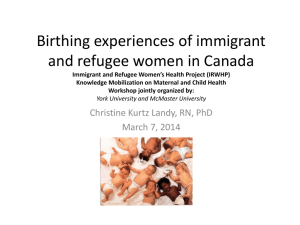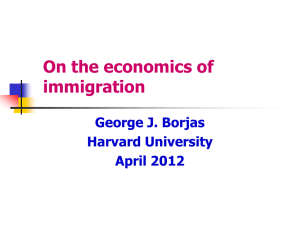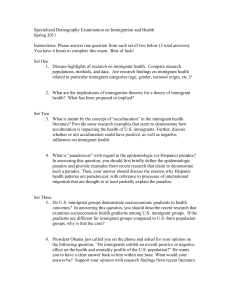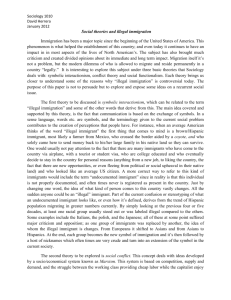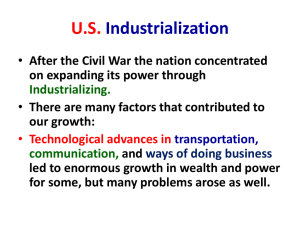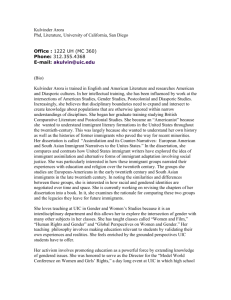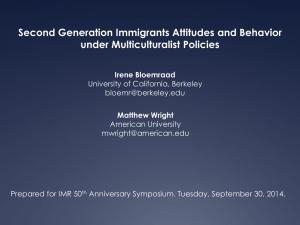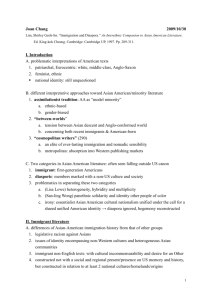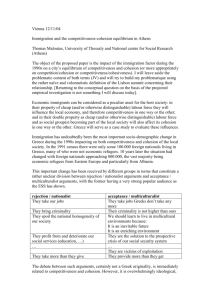Immigration - Barr-Harris Children`s Grief Center
advertisement
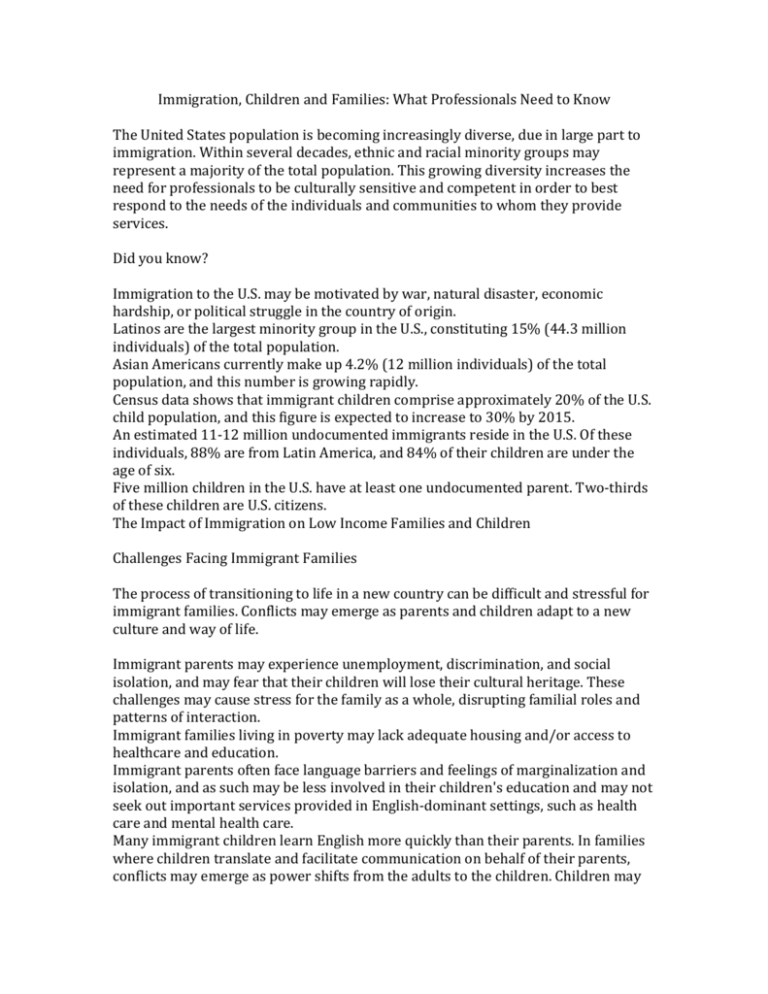
Immigration, Children and Families: What Professionals Need to Know The United States population is becoming increasingly diverse, due in large part to immigration. Within several decades, ethnic and racial minority groups may represent a majority of the total population. This growing diversity increases the need for professionals to be culturally sensitive and competent in order to best respond to the needs of the individuals and communities to whom they provide services. Did you know? Immigration to the U.S. may be motivated by war, natural disaster, economic hardship, or political struggle in the country of origin. Latinos are the largest minority group in the U.S., constituting 15% (44.3 million individuals) of the total population. Asian Americans currently make up 4.2% (12 million individuals) of the total population, and this number is growing rapidly. Census data shows that immigrant children comprise approximately 20% of the U.S. child population, and this figure is expected to increase to 30% by 2015. An estimated 11-12 million undocumented immigrants reside in the U.S. Of these individuals, 88% are from Latin America, and 84% of their children are under the age of six. Five million children in the U.S. have at least one undocumented parent. Two-thirds of these children are U.S. citizens. The Impact of Immigration on Low Income Families and Children Challenges Facing Immigrant Families The process of transitioning to life in a new country can be difficult and stressful for immigrant families. Conflicts may emerge as parents and children adapt to a new culture and way of life. Immigrant parents may experience unemployment, discrimination, and social isolation, and may fear that their children will lose their cultural heritage. These challenges may cause stress for the family as a whole, disrupting familial roles and patterns of interaction. Immigrant families living in poverty may lack adequate housing and/or access to healthcare and education. Immigrant parents often face language barriers and feelings of marginalization and isolation, and as such may be less involved in their children's education and may not seek out important services provided in English-dominant settings, such as health care and mental health care. Many immigrant children learn English more quickly than their parents. In families where children translate and facilitate communication on behalf of their parents, conflicts may emerge as power shifts from the adults to the children. Children may selectively filter the information they share with their parents, and parents may monitor their children less closely. Psychological Impact of Immigration on Young Children Children in immigrant families tend to embrace new cultural values and behaviors more rapidly than their parents. Children may feel self-conscious about their native culture, and this can contribute to tensions within the family. Immigrant children often find themselves within a stressful clash of divergent cultures, including Their parents' culture from their native country Mainstream American culture Racial and Ethnic minority cultures that have developed within the US As immigrant children develop multicultural identities that may differ from their parents', they may experience increased stress, which can contribute to increased vulnerability to psychological distress, adjustment problems, poor school performance, and maladaptive behaviors, such as drug and alcohol use. Immigrant children facing the challenges mentioned in the section above report lower self-esteem and experience more daily hassles than non-immigrant children. Children of undocumented immigrants may experience increased fear and anxiety at the prospect of parental arrest or deportation. Impact of Parents' Arrests and Deportation for Children of Undocumented Immigrants Each year, 1.6 million undocumented immigrants in the U.S. are arrested and/or deported. As a result, families may be fragmented or may live in hiding or isolation, and children may experience general instability and confusion, economic difficulties, and the interruption of schooling. Consequences of such situations include: Disappearance of one or both parents is a traumatic experience for children. Feelings of loss or abandonment, as well as separation anxiety, are common. Children may feel anger toward parents and may act out or display aggressive behaviors. Children may feel ashamed, outcast, and criminalized because their parents were arrested. Children may become distressed or depressed due to family separation, social isolation, and exclusion from the general community. Common changes in behavior as the result of parental arrest or deportation include: loss of appetite, aggressiveness, sleep problems, and decreased cognitive and academic performance. The incidence of Posttraumatic Stress Disorder (PTSD) is higher among adults who were separated from their parents during childhood.
